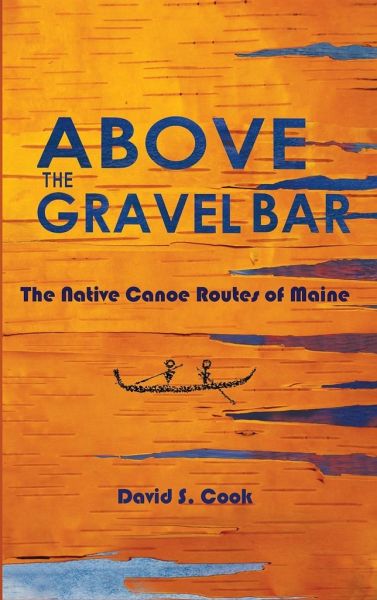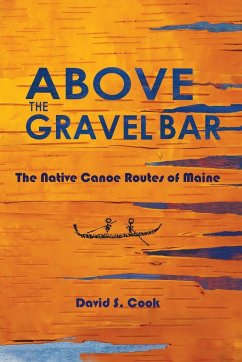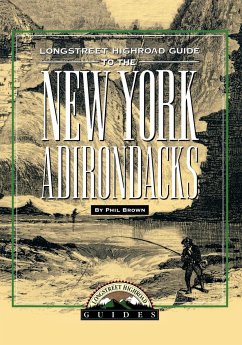
Above the Gravel Bar
The Native Canoe Routes of Maine

PAYBACK Punkte
11 °P sammeln!
Above the Gravel Bar opens up a new way of seeing Maine and the Northeast as a vast network of waterways. With this book you can put your kayak/canoe in a nearby river or pond in Maine and travel prehistoric routes to campgrounds thousands of years old. David Cook takes the reader on a birchbark canoe journey through the landscape in the context of Northeastern geological development and Indian prehistoric culture. On rivers, lakes, over carries, and through coastal routes, we follow the archaeological and historical record, informed by accounts of early explorers. First attempted in the early...
Above the Gravel Bar opens up a new way of seeing Maine and the Northeast as a vast network of waterways. With this book you can put your kayak/canoe in a nearby river or pond in Maine and travel prehistoric routes to campgrounds thousands of years old. David Cook takes the reader on a birchbark canoe journey through the landscape in the context of Northeastern geological development and Indian prehistoric culture. On rivers, lakes, over carries, and through coastal routes, we follow the archaeological and historical record, informed by accounts of early explorers. First attempted in the early twentieth century, the publication of these ancient canoe routes, in daily use for millennia, is finally accomplished and in its third edition, with translations of Indian place names, a thorough index, notes and bibliography, and a foreword by Penobscot tribal historian, James Eric Francis, Sr. The anthropologist David Sanger, PhD, provides an introduction. Thirty-two illustrations including twelve maps. This book has been chosen to be included in the new curriculum introduced with the Maine state law requiring K-12 schools to teach Maine Native American culture. "Puts the true ancestral landscape into perspective." —James Eric Francis, Sr., Penobscot tribal historian Above the Gravel Bar is a masterful account of canoeing Maine’s interconnected waterways. —David Sanger, PhD, Professor Emeritus, Anthropology and Quaternary Studies, University of Maine, Orono









![Canoeing in the Wilderness [Standard Large Print 16 Pt Edition] Cover Canoeing in the Wilderness [Standard Large Print 16 Pt Edition]](https://bilder.buecher.de/produkte/69/69071/69071064n.jpg)


